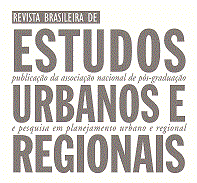Abstract
Over the past twenty years, in different parts of the world, there has been an increase in environmental conflicts related to mining activities. In order to understand how agents in the extractive sector have described these conflicts and the way in which they have acted in response to them, this article analyzes two sets of publications produced during the last decade. Risk and trend reports for the extractive sector prepared through consultancies by Ernst & Young, PricewaterhouseCoopers, Deloitte and KPMG and three community relations manuals issued by the Brazilian Mining Institute, the National Confederation of Industry and the International Mining and Metals Council. We identified that the production and circulation of these materials are part of a set of authoritarian practices by extractive corporations set within at least three dimensions: i) an understanding that organized social actors who act in the defense of territories are risks that need to be managed; ii) the dissemination of “dialogue” and “social participation” techniques used to identify and classify social actors and iii) promoting the idea that the destiny of the territory is ineluctably linked to the corporation.
Keywords:
Extractive Sector; Environmental Conflicts; Social Risks; Affected Communities; Corporations; Neo-Extractivism

 Thumbnail
Thumbnail
 Source:
Source: